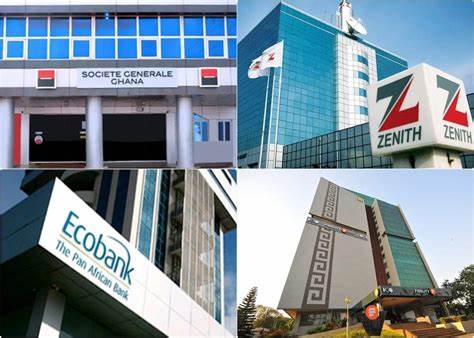The banking industry is not doing much in lending to the private sector and consumers to stimulate spending and growth of the economy, post covid-19, Banking Consultant, Dr. Richmond Atuahene has disclosed.
The Banking Sector Development Report for the first two months of this year showed that investments, largely government securities dominated the assets mix of banks, compared to lending which has reduced considerably.
Dr. Atuahene told Joy Business the asset mix of banks do not augur well for the economic recovery of the country, following the impact of covid-19.
“Depending on which area you’re looking at; if you’re looking at the banking sector - from the investment point of view - investing in government securities, then you can say that the banking sector is being prudent”, he pointed out.
“However, if you look at the credit to the private sector, we are nowhere near making the transformation agenda or to recover, post covid-19. So, it’s either government will have to reduce its borrowing domestically to enable the banks to free credit to support the private sector…what we mean by the crowding out”, he said.
“Currently there is a crowding out; which basically means there’s no credit anymore for private sector development and that’s not good generally for the economy of the country”, he further noted.
Banks assets in investments increased to 44%
Investments continued to dominate the assets mix as its share increased significantly from 36.3% in February 2020 to 44.7% in February 2021, reflecting the banks’ increasing appetite for less risky assets, the March 2021 Banking Sector Development report noted.
The share of loans and advances (net) however declined to 27.2%, from 31.5% in the previous year on account of the slowdown in credit growth.
The share of “Cash and Due from Banks” also declined during the period to 19.9%, from 24.2%, due in part to the reduction in the primary reserve requirement by 2 percentage points in March 2020, one of the regulatory measures to boost liquidity and encourage lending to critical sectors of the economy and also support sectors badly hit by the pandemic.
Non-earning assets (fixed assets and other assets), however, recorded a marginal uptick to 8.2%, from 8.0%.
Latest Stories
-
ECG Power Queens support Ho Female Prison
10 minutes -
Don’t appoint a new EC Chair; allow Jean Mensa to work – Prof. Stephen Adei to Mahama
35 minutes -
Bayer Leverkusen’s Jeremie Frimpong arrives in Ghana for visit
59 minutes -
‘It will be disastrous if Mahama removes the Chief Justice’ – Prof. Stephen Adei
1 hour -
Jean Mensa must step down as EC Chair – APC and Movement for Change assert
1 hour -
Akufo-Addo calls on police to refine strategies to avoid prolonged electoral unrest
1 hour -
Only NPP looting brigade unhappy about ORAL – Ablakwa
1 hour -
CSIR-SARI introduces integrated soil fertility management technology to boost maize production
1 hour -
Ghana’s indigenous agribusiness faces challenges impacting economic growth – Dr. Azinu
1 hour -
41-year-old man arrested over illegal power connection
2 hours -
65-year-old man plans to walk over 250-km Kumasi-Accra journey for Mahama’s swearing-in
2 hours -
Woman dies after being set on fire on NYC subway
3 hours -
Elon Musk’s curious fixation with Britain
3 hours -
EBID wins the Africa Sustainability Award
5 hours -
Expansion Drive: Takoradi Technical University increases faculties
9 hours

